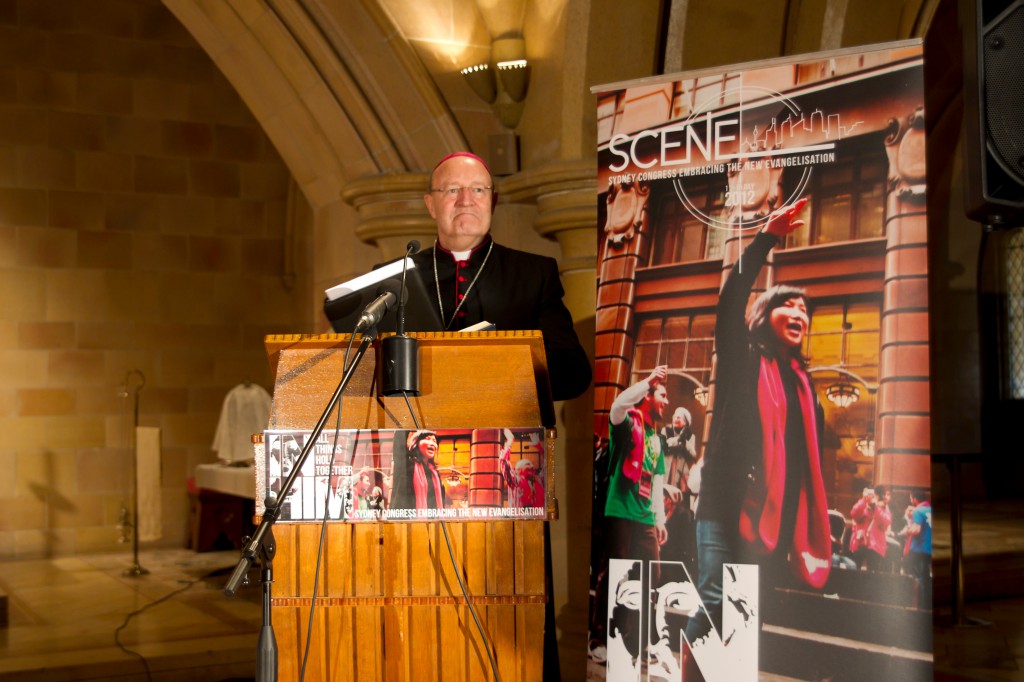
The Year of Grace is an opportunity to discover the centrality of God’s action in our lives in the face of the mistaken belief we can merit our own salvation, Bishop Julian Porteous told young adults at Sydney’s SCENE conference last Wednesday.
Sydney’s Auxiliary Bishop and the Archdiocese’ Episcopal Vicar for Renewal and Evangelisation was speaking at the opening session of the five day evangelisation conference.
“There is a tendency among Catholics to think … that it is really our own efforts that will get us salvation,” Bishop Porteous said, contrasting that mistaken view with the words of St Paul in Ephesians, that we are saved by grace through faith.
The bishop said it was imperative that the faithful “say yes” to God, but that in the final analysis, it was God’s grace that did the saving.
“The reason why I am on the path of salvation is because God intervened in my life … In the end, it’s not what we do; in the end, it is the action of God … of his love and mercy, that enables us to be saved.”
Bishop Porteous told the crowd that in the wake of the Year of Grace, he was continually being asked to define ‘grace’, something he admitted was a nebulous and difficult concept to define.
The action and import of grace could be likened to that of breathing, the bishop said; continually at work but rarely the subject of conscious thought.
“How much do we in fact depend upon grace to grow and develop in Christian life as against saying “I’m the one who’s got to get there, I’m the one who’s got to achieve by virtue of my own effort, and my own struggle …
“Who I am, is not the result of what I have been able to manufacture or achieve or create; who I am, is what God had done in me … is the fruit of God’s grace at work in my life,” Bishop Porteous said.
“St Paul says you can’t even say “Jesus is Lord” without the action of the Holy Spirit, without the action of grace.”
Good works should never be detached from faith, Bishop Porteous said, reiterating the words of Pope Benedict XVI in Deus Caritas Est, that “it is very important that the Church’s charitable activity maintains all of its splendour and does not become just another form of social assistance”.
“There is always a danger that things can start out, motivated in a good way, but they can end up being, somehow, bureaucratic or somehow they become more of a human activity rather than something that is deeply inspired by faith,” Bishop Porteous said.
“In the end it is that special quality of our faith, of our relationship with God, that brings real value to what we may be doing.”
Bishop Porteous began his talk by recounting the origins of the Year of Grace in the meetings of the bishops’ conference last year.
The answer to present and future challenges, the bishops concluded, was a renewed focus on the person of Jesus Christ. “Really when we look at the challenges we face in the Church, when we look at all the issues that lie before us, in the end it’s not so much to focus on the ways we can go about changing things or the particular programs we should do but really the life of the Church, the future of the Church, really focuses upon Jesus.”